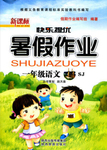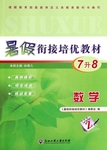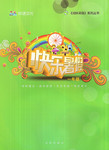题目内容
Very few scientists _____ with completely new answers to the world’s problems.
A. come to B. come round C. come up D. come on
C

 新课标快乐提优暑假作业陕西旅游出版社系列答案
新课标快乐提优暑假作业陕西旅游出版社系列答案 暑假衔接培优教材浙江工商大学出版社系列答案
暑假衔接培优教材浙江工商大学出版社系列答案 欣语文化快乐暑假沈阳出版社系列答案
欣语文化快乐暑假沈阳出版社系列答案Today, over six billion people live on the planet. This means that there are very few places on Earth with no people. One place that has very few people is at the bottom of the Earth. In Antarctica, the icy continent surrounding the South Pole, you will not find anyone who lives there all the time.
First, Antarctica is the coldest place on Earth. For example, it can be –l30℃ in the winter. Humans cannot live in this kind of environment. Because it is so cold, very few plants or animals live there. This means there are no farms and no places to find wild plants or animals to eat.
Second, Antarctica can be dangerous. Many people think that it is safe to travel to Antarctica in the summer months when it is warmer. However, Antarctica is mostly ice, so when it’s summer, the ice melts. When the ice melts, the ice can break. So, people cannot travel around Antarctica during the summer. If the ice breaks, they could fall into the water and die.
Another serious problem in Antarctica is the sun. Because Antarctica is mostly ice, there are no trees so there is no shade. Also, the ground is mostly white ice so the sun bounces off (反射) it. The light from the sky and the light from the ground can burn people’s skin and hurt their eyes. People must be very careful in this situation. For example, they must wear sunglasses to protect their eyes. They must also cover their hands and faces all the time.
Although Antarctica is a tough place to live, explorers have discovered coal in Antarctica. This leads them to believe that Antarctica at one time was a land of swam (沼泽) and forests.
【小题1】This text is mainly about _____.
| A.the discovery of Antarctica |
| B.how people travel around Antarctica |
| C.different animals found in Antarctica |
| D.why it is difficult to live in Antarctica |
| A.Antarctica is a place with no animals |
| B.no people can survive in Antarctica |
| C.Antarctica is colder than any other continent on Earth |
| D.the temperature in Antarctica is below zero all the time |
| A.In spring. | B.In summer. | C.In autumn. | D.In winter. |
Parents whose children show a special interest in a sport feel very difficult to make a decision about their children’s careers. Should they allow their children to train to become top sports men and women? For many children it means starting schoolwork very young, and going out with friends and other interests have to take a second place. It’s very difficult to e
to e xplain to a young child why he or she has to train five hours a day, even at the weekend, when most of his or her friends are playing.
xplain to a young child why he or she has to train five hours a day, even at the weekend, when most of his or her friends are playing.
Another problem is of course money. In many countries money for training is available from government for the very best young sportsmen and women. If this help can not be given, it means that it is the parents who have to find the time and the money to support their child’s development and sports clothes, transport to competitions, special equipment, etc. Can all be very expensive?
Many parents are worried that it is dangerous to start serious training in a sport at an early age. Some doctors agree that young muscles may be damaged by training before they are properly developed. Professional(专业的) trainers, however, believe that it is only by training young that you can reach the top as a successful sports person. It is clear that very few people do reach the top, and both parents and children should be prepared for failure even after many years of training.
【小题1】This article is most probably taken from ____.
| A.a letter | B.an advertisement |
| C.a personal diary | D.a newspaper article |
A.feel un certain if they should let their children train to be sports men or women . certain if they should let their children train to be sports men or women . |
| B.try to get financial(财政的) support from the government for their children’s training. |
| C.have to get medical advice from doctors about training methods |
| D.prefer their children to be trained as young as possible |
| A.By starting young, you won’t have much time for your schoolwork. |
| B.Early training may damage your muscles. |
| C.Most children may become professional sports men after a long period of training. |
| D.It’s very expensive for parents to support their child’s development in sports. |
| A.to repeat the activities some other day |
| B.to become less important |
| C.of all the things, they are the most important |
| D.to happen again |
| A.Most people | B.Some people | C.Hardly any people | D.No people |
Students and Technology in the Classroom
I love my blackberry — it’s my little connection to the larger world that can go anywhere with me. I also love my laptop computer,as it holds all of my writing and thoughts. Despite this love of technology, I know that there are times when I need to move away from these devices(设备)and truly communicate with others.
On occasion, I teach a course called History Matters for a group of higher education managers. My goals for the class include a full discussion of historical themes and ideas. Because I want students to thoroughly study the material and exchange their ideas with each other in the classroom, I have a rule — no laptop, iPads, phones ,etc .When students were told my rule in advance of the class, some of them were not happy.
Most students assume that my reasons for this rule include unpleasant experiences in the past with students misusing technology. There’s a bit of truth to that. Some students assume that I am anti-technology. There’s no truth in that at all. I love technology and try to keep up with it so I can relate to my students.
The real reason why I ask students to leave technology at the door is that I think there are very few places in which we can have deep conversions and truly engage complex ideas. Interruptions by technology often break concentration and allow for too much dependence on outside information for ideas. I want students to dig deep within themselves for inspiration and ideas. I want them to push each other to think differently and make connections between the course the material and the class discussion.
I’ve been teaching my history class in this way for many years and the evaluations reflect student satisfaction with the environment that I create. Students realize that with deep conversation and challenge, they learn at a level that helps them keep the course material beyond the classroom.
I’m not saying that I won’t ever change my mind about technology use in my history class, but until I hear a really good reason for the change, I’m sticking to my plan. A few hours of technology-free dialogue is just too sweet to give up.
1.Some of the students in the history class were unhappy with _______.
|
A.the course material |
B.others’ misuse of technology |
|
C.discussion topics |
D.the author’s class regulations |
2.The underlined word “engage ”in paragraph 4 probably means _______.
|
A.explore |
B.accept |
C.change |
D.reject |
3. According to the author, the use of technology in the classroom may _______.
|
A.keep students from doing independent thinking |
|
B.encourage students to have in-depth conversations |
|
C.help students to better understand complex themes |
|
D.affect students’ concentration on course evaluation |
4. It can be inferred from the last paragraph that the author _______.
|
A.is quite stubborn |
|
B.will give up teaching history |
|
C.will change his teaching plan soon |
|
D.values technology-free dialogues in his class |